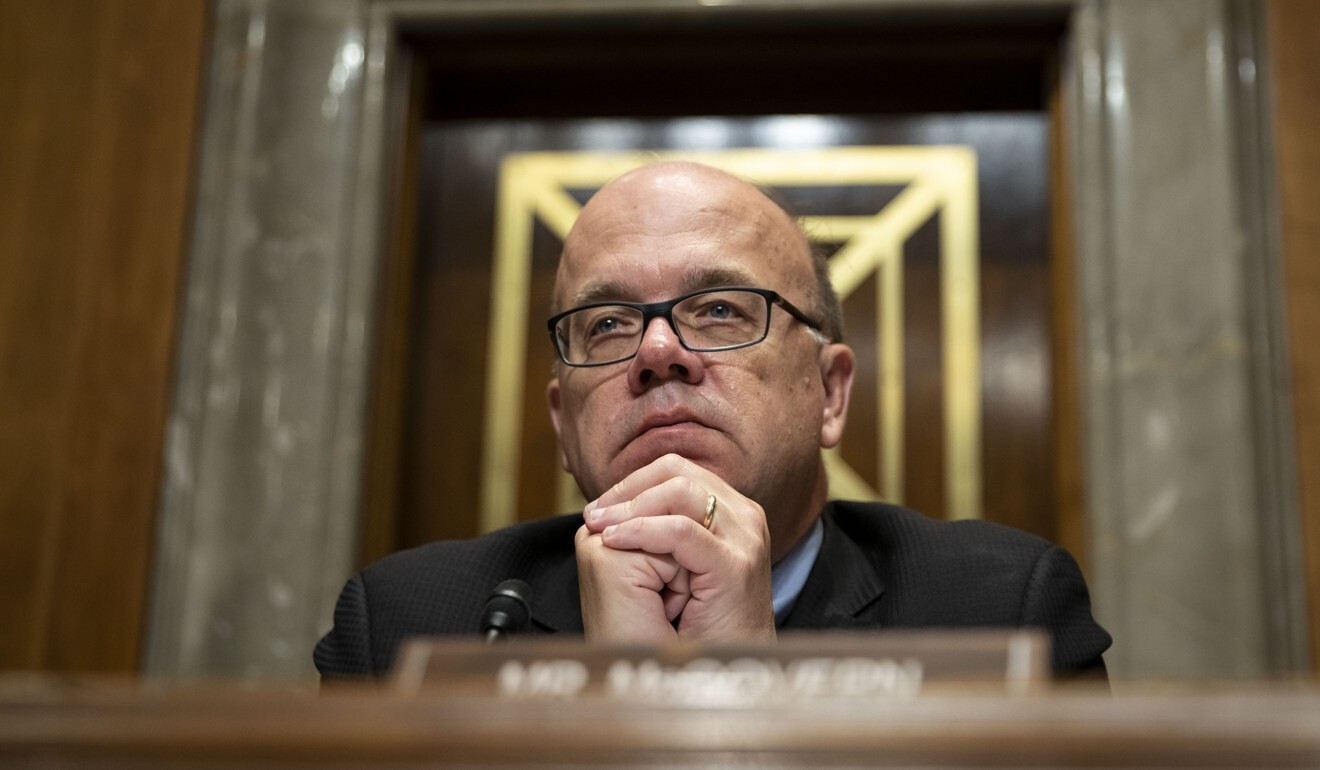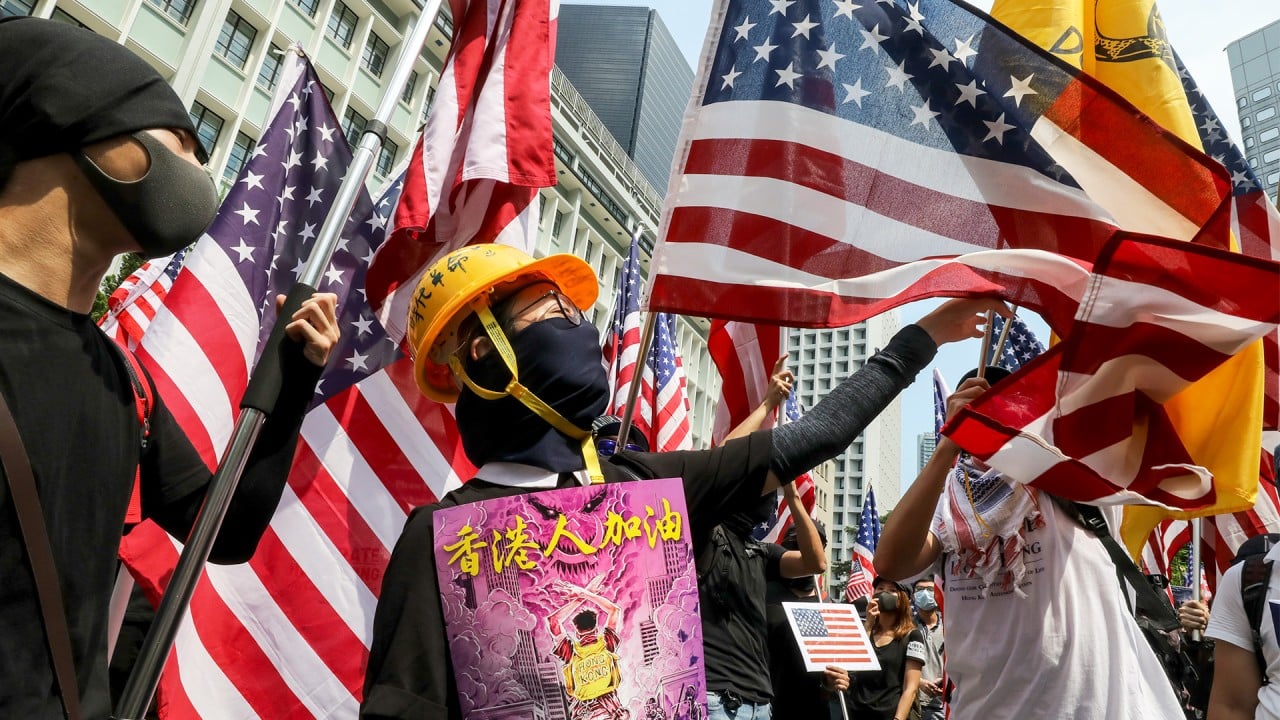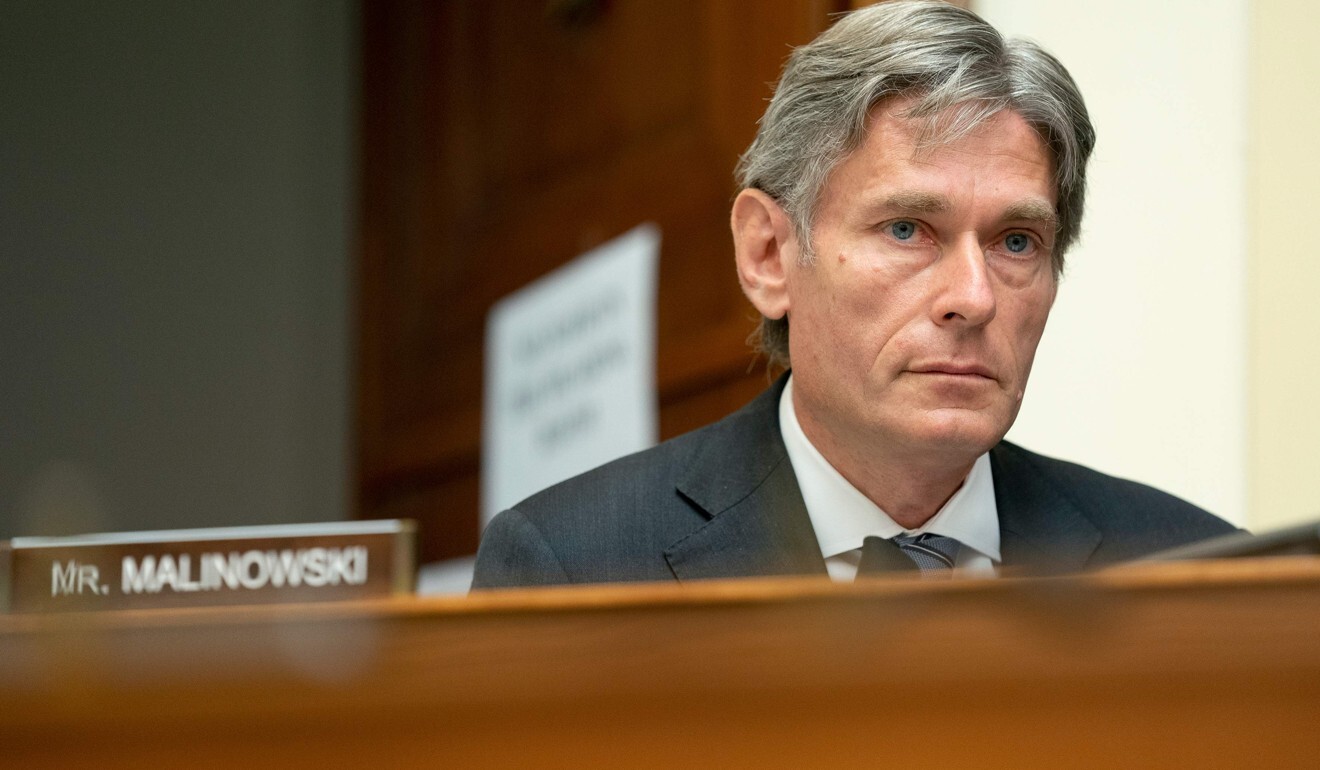
US lawmakers seek further actions to provide safe harbour to Hongkongers and Uygurs
- Members of Congressional-Executive Commission on China call on both Congress and US President Joe Biden to do more on asylum initiatives
- Several bills that would provide protections are stalled legislatively
The appeals came during a hearing of the Congressional-Executive Commission on China (CECC), and as several bills that would provide protections to such individuals continue to languish.
“We’re moving too damn slow here in Congress,” Representative James McGovern, a Massachusetts Democrat and co-chair of the commission, said.
“We need to do more,” he said. “The administration needs to do more.”

Lawmakers on the committee pledged to keep pressing Beijing over its human rights record, but acknowledged that their ability to force any change in course was limited, even through punitive measures like sanctions.
Providing a safe haven to those seeking to flee China, they argued, was one action the US could take without Beijing’s cooperation.
“While we cannot control the Chinese government’s behaviour, we have the power to protect the persecuted who come to our shores,” said Senator Jeff Merkley, the Oregon Democrat who is the CECC chair.
Biden links policies targeting Uygurs in Xinjiang to the Holocaust
As the bills await congressional votes, commission members on Tuesday said the Biden administration should take steps on its own.

03:44
US offers temporary ‘safe haven’ for Hongkongers in response to crackdown on opposition
The White House, members noted, has the authority to designate “Priority 2” status for those fleeing China via executive action – as it did with Afghans in August following the US military withdrawal from Afghanistan.
“As we move towards a legislative solution – which would obviously be a good one but it’s languished since January – perhaps we could reach out collectively with a letter to the administration asking that they just do this,” suggested Representative Chris Smith, Republican of New Jersey.
In August, the Biden administration said it would provide temporary “safe haven” to Hongkongers already in the US, delaying by 18 months the removal of anyone whose visa had expired.
At the time, Biden said the action was a necessary response to Beijing’s “significant erosion” of Hongkongers’ rights and freedoms.
National security law: Beijing slams US ‘safe haven’ offer to Hongkongers
On Tuesday, Representative Tom Malinowski, a New Jersey Democrat, called the executive order a “good step” that provided relief for Hongkongers in the US. However, he noted that those individuals faced a long-term threat of prosecution upon their return to Hong Kong and needed a more lasting response through legislation.
“I don’t think it’s realistic to think that this is going to be resolved in 18 months,” said Malinowski said.
Sunny Cheung Kwan-yang, a Hong Kong activist who fled the city last year, told the commission that many Hongkongers in the US had been unable to obtain details about the administration’s temporary safe haven programme, leaving them “desperate” and unsure about their futures in the US.
“The sooner they settle down, the sooner they can contribute back to the US,” Cheung said, urging lawmakers to press the Department of Homeland Security to release more details about the plan.

Malinowski, sponsor of the Hong Kong People’s Freedom and Choice Act, argued that US support for those fleeing China not only furthered humanitarian goals but also served a strategic geopolitical purpose, because of a provision that would provide 5,000 visas each year to Hongkongers designated as “highly skilled”.
“What I aim to do with these high-skill visas is to send a signal to the Chinese government that if you crush the freedoms of the people of Hong Kong, your loss will be our gain,” said Malinowski. “You will lose the best and brightest people in Hong Kong – those who have been the secret to its prosperity and success – to your greatest adversary, the United States.”

